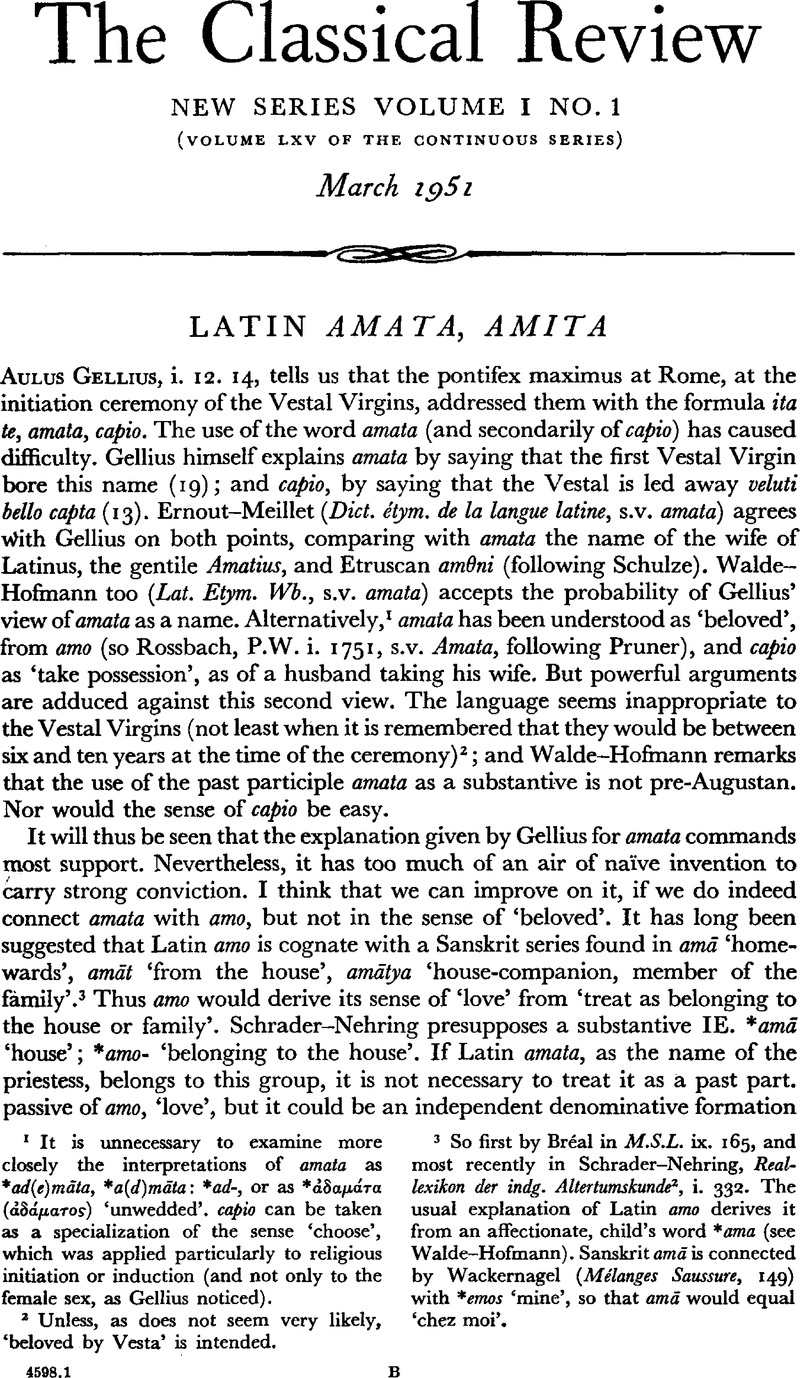No CrossRef data available.
Published online by Cambridge University Press: 13 February 2009

page 1 note 1 It is unnecessary to examine more closely the interpretations of amata as *ad(e)māta, *a(d)māta: *ad-, or as *ἀδαμάτα (ἀδάματος) ‘unwedded’. capio can be taken as a specialization of the sense ‘choose’, which was applied particularly to religious initiation or induction (and not only to the female sex, as Gellius noticed).
page 1 note 2 Unless, as does not seem very likely, ‘beloved by Vesta’ is intended.
page 1 note 3 So first by Bréal in M.S.L. ix. 165, and most recently in Schrader–Nehring, Real-lexikon der indg. Altertumskunde 2, i. 332. The usual explanation of Latin amo derives it from an affectionate, child's word *ama (see Walde—Hofmann). Sanskrit amā is connected by Wackernagel (Mélanges Saussure, 149) with *emos ‘mine’, so that amā would equal ‘chez moi’.
page 2 note 1 Walde–ofmann connects amita with the child's word *ama which is the supposed base of amo. So too Walde–okorny, i. 53; also Schrader-Nehring, ii. 86 (in opposition to the view expressed at i. 332). A connexion between amata and amita is supported by the view of Dion. Hal. i. 64. 2 that Amita is an older form of the name Amata (based on Varro, suggests Rossbach, P.W. i. 1751).
page 2 note 2 See Risch, , Wortbildung der homerischm Sprache, 28 ff.Google Scholar; Chantraine, Formation des Noms en grec ancien, 310.
page 2 note 3 It is, of course, a derivative of γάμος and not of the verb γαμέω, which would have given the form *γαμητή.